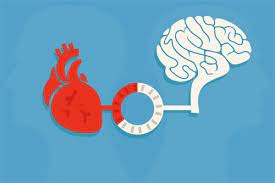How is the opposition between Enlightenment thinking and Romanticism relevant to modern science?
This piece originally appeared on Quora.com as an answer to the question, “How is the opposition between Enlightenment thinking and Romanticism relevant to modern science?”
Romanticism is a sad story. Romanticism is always doomed, but the Enlightenment makes Romanticism inevitable. As always, don’t take the following too seriously.
To understand what’s going on with Romanticism, you have to understand the Enlightenment. To understand the Enlightenment, you have to understand this idea called “instrumental rationality.” Instrumental rationality is where you come up with a system, such as the laws of physics or the periodic table or information theory, and use it to control, predict, and explain things. During the Enlightenment, Europeans got this bright idea where they would enthrone instrumental rationality above all else. So all of our thinking and art and so on had to be subordinated to instrumental rationality. Ideally, for an Enlightenment thinker, the ultimate goal of everything you do should be the domination of the world by abstract rule systems. And we’ve been playing out that legacy for 400 years now.
It’s true that the Enlightenment philosophers were not robotic calculators. Descartes, Spinoza, and Leibniz all tried to prove God in their own way, although it’s arguable whether Spinoza’s God is a God at all. That being said, I think that the overall picture I’m presenting here is accurate when you consider the effect of the Enlightenment on society. This isn’t about what e.g. Descartes or Locke personally believed.
Now, instrumental rationality is where we get good things, like the laws of physics and chemistry, because it turns out that instrumental rationality works really friggin’ well when you apply it to tiny pieces of matter moving around. It works on matter moving around because matter in motion responds well to idealization, i.e. can be easily described and quantified. Well, not “easily,” as it took us a few centuries to get where we are now, but it certainly works.
Unfortunately, instrumental rationality has limits, and our intellectuals have spent the past century in a long-running tantrum against that fact. Postmodernism, or one variety of postmodernism, is basically the acknowledgment that instrumental rationality is not omnipotent. Psychologists continually promised a theory of behavior for some centuries now but are stuck on the pseudo-scientific treadmill of statistical pontification. Cultural anthropologists basically write down “I think I might have seen this happen” and never predict, or arguably even systematize, anything. Nobody takes sociology seriously unless they make money from it (I am exaggerating there, but less than you think). It’s not that any of those disciplines are bad, or that they don’t have value. They’re just not sciences, because they’re trying to do things that instrumental rationality cannot do. Unfortunately, due to a combination of hubris and institutional entrenchment, we can’t admit this to ourselves. (By “institutional entrenchment” I mean the fact that certain people make money off of social disciplines.)
In the midst of all this, Romanticism is inevitable. I actually disagree with speaking of Romanticism in the past tense as if it were something that happened and is now over with. That might be true about a specific era of art in the 1800s, but that era of art was just one manifestation of a much broader phenomenon. Romanticism is not something that happened once and is now over with. Romanticism, rather, is a constant; as long as you have modernity, as long as society is playing out the legacy of the Enlightenment, the Romantic counter-reaction will be there.
The reason I said all that stuff about the social sciences is this: the limitation of instrumental rationality is what causes the social sciences to fail, and it’s also what causes Romanticism to exist. Unlike magnetic fields and cannonballs and chemical reactions, humans do not respond well to idealization. Accordingly, a society based on instrumental rationality makes us miserable: we can try to use the social sciences to make a better society, but the social sciences don’t actually work because we can’t idealize people like we can with electrons and rockets and stuff. So when you try to use social science to make society better, you just end up creating a Kafka-esque nightmare.
One of many places where this is visible is when you apply for a job: you might have to take a battery of tests, some of which have ideological content, to determine whether you’re a “good fit.” What are those tests supposed to measure? Do they successfully measure it? Does the thing they’re supposed to measure even exist? If “implicit bias” isn’t even real, then what are these tests other than some bizarre submission ritual? Are they just measuring your allegiance to an ideology, by your willingness to take the test?
I’m not saying that Romanticism comes solely from the failure of the social sciences, by the way, or from implicit bias tests for that matter. I’m saying that the failure of the social sciences and Romanticism have a common cause, which is the limitations of instrumental rationality; ham-fisted social engineering is just one means by which we become disgruntled Romantics. Whether our Romanticism manifests in the form of a groundbreaking symphony or maniacal laughter while voting a right-wing populist into office, the source is the same.

